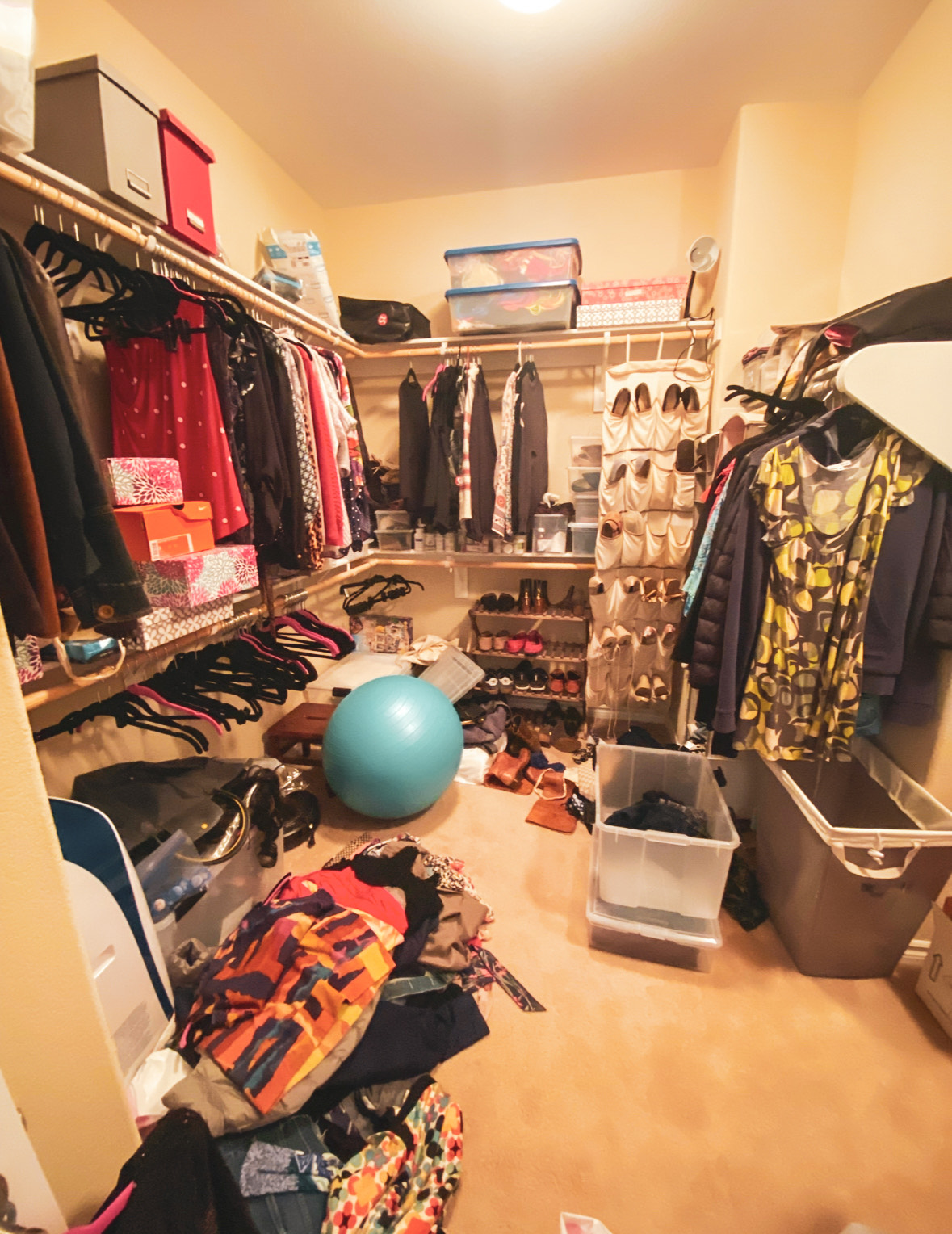Have you ever walked into a room and felt instantly drained, without fully understanding why?
Recognizing clutter in your home isn’t always obvious, but its impact is. Over time, we adapt to it and barely notice how much it steals our focus, energy, and ability to feel at ease in our own homes.
A cluttered home doesn’t just take up space. It takes up mental energy. When your environment is filled with things that no longer serve you, it creates subtle stress, makes everyday tasks harder, and keeps your home from being the place of rest and restoration it could be.
Clutter itself isn’t the real problem. It’s often a signal, your home’s way of showing you where something isn’t working. When you start viewing clutter as feedback instead of failure, it becomes easier to notice what it’s trying to reveal.
Why We Don’t See It
Clutter sneaks up on us because our brains are wired to adapt.
That pile of mail on the dining table? It’s been there so long it’s practically wallpaper. The overflowing closet? You’ve stopped seeing it, even as it quietly adds friction to your mornings.
This is what I call clutter blindness. It happens when the buildup becomes so normal you stop recognizing its impact.
I see it with my coaching clients all the time:
- The busy mom who doesn’t notice her coat rack overflowing until her child can’t find a jacket.
- The work-from-home dad whose “pending” paper pile has become permanent décor.
Once you become aware, the shift can be immediate. Awareness is what opens the door to change.
What Is Clutter, Really?
Clutter isn’t just a pile of mail on the dining table or a closet where yo can’t see the floow. It can show up in different ways:
- Physical Clutter: Items you no longer use or you really don’t like, but can’t seem to let go of.
- Digital Clutter: Overflowing email inboxes, disorganized files, or a phone full of screenshots you’ll never revisit.
- Mental Clutter: Worries, to-do lists that don’t seem to end, or random thoughts that occupy your mind.
- Emotional Clutter: Feelings connected to past experiences or relationships that hold you back.
The key to recognizing clutter in your home is simple: if it no longer adds value or alignment, it’s holding space that could be used for something better.
How to Start Noticing Clutter
- Look for what you’ve stopped using: Not because the occasion hasn’t come up, but because it no longer fits your current life. Maybe it reflects an old routine, a past version of you, or a need that’s already been met in another way. Those are signs of where life has shifted but what you own and your environment hasn’t caught up yet.
- Notice where things pile up. The spots that never seem to stay clear usually point to a system that’s missing or no longer supporting you. Instead of assuming you’re just messy, see it as information about what’s not flowing.
- Pay attention to your body. If certain areas feel tense, awkward, or hard to navigate, your home is giving you feedback. Something about the layout or routine may need to shift so it works with your real life again.
What Happens When Clutter Goes Unnoticed
Clutter doesn’t just affect the way your home looks; it can have far-reaching consequences for your mental and emotional well-being. Here are some ways clutter can impact your life:
- It raises stress levels. Visual noise keeps your nervous system on alert.
- It drains decision-making energy. When nothing has a home, even small choices feel heavy.
- It strains relationships. Shared spaces can become sources of tension or blame.
- It scatters focus. A cluttered environment divides your attention and drains motivation.
When your home becomes intentional, it restores peace, energy, and focus, helping you show up more fully in your life.
A Client Experience
One of my clients had a large collection of shoes. She was a shoe lover and had spent years building her collection. But what she didn’t realize was that some of her shoes had actually become clutter. She wasn’t using them, some were falling apart, and others she didn’t even like anymore. Despite this, they were taking over her home office space, making it harder for her to focus and be productive.
She never thought to get rid of any of her shoes and didn’t recognize how they were impacting her ability to work efficiently. Once we worked together to sort through them, she was able to let go of the ones that no longer served her and reclaim her space for what it was meant for – her work and creativity. The transformation wasn’t just physical; she felt a renewed sense of clarity and motivation.
This is the power of creating an environment that supports your growth, rather than holding you back.
Turning Awareness Into Action
Decluttering isn’t about having less. It’s about making space for what truly supports you now. Letting go of what no longer serves you opens the door to a home that feels lighter, more intentional, and aligned with your current life.
Recognizing what has become clutter in your home is only part of the story. What matters next is how you respond to what it’s revealing. When you use that awareness to make small, intentional shifts, your home starts working with you again.
If you’re ready to take that next step, download my free guide, Setting Up Your Home to Support Your Life. Start here to begin aligning your space with how you actually live and want to feel.
Here for your home journey,

